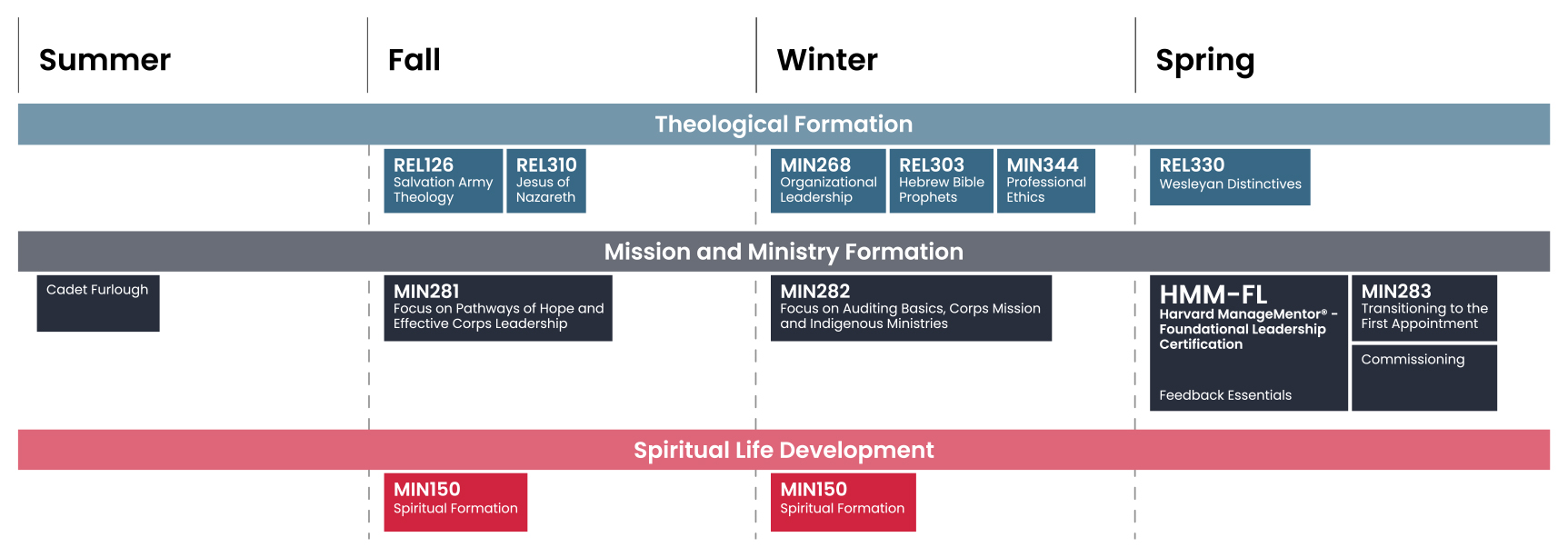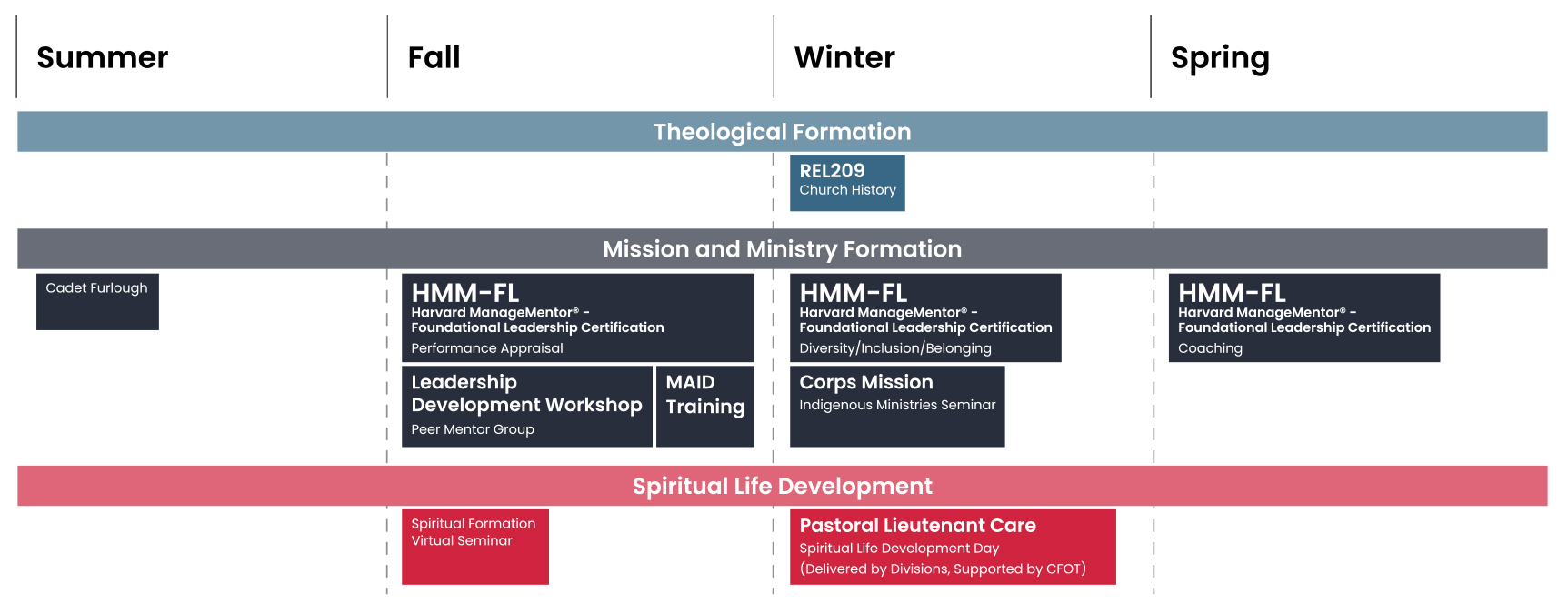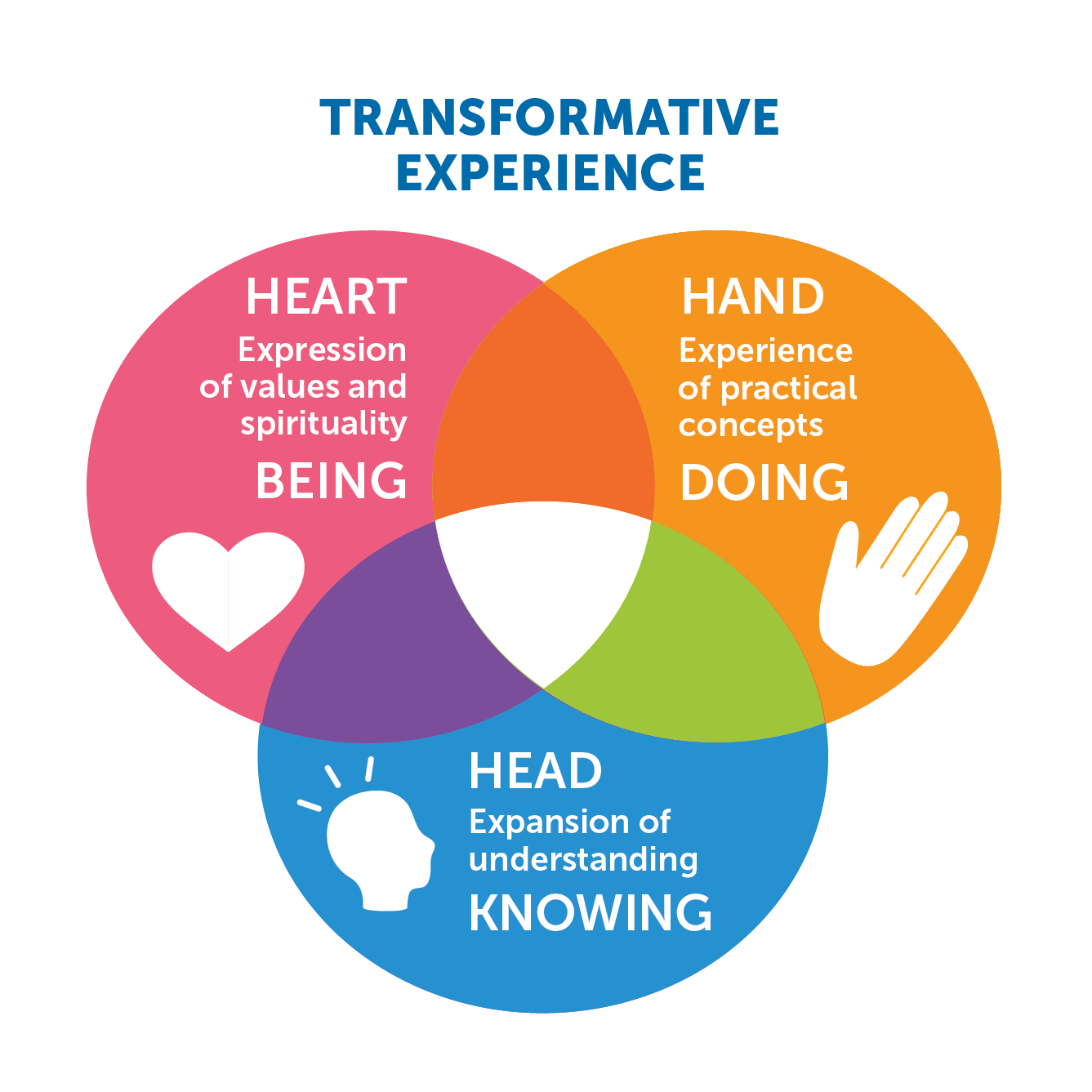CFOT TRAINING
The College for Officer Training’s dynamic new training program uses field-based, experiential learning as a core component in the training and education of cadets. With this model, all cadets have regular opportunities to apply what they learn in their courses to real-life ministry situations. They truly experience life as a Salvation Army officer, building healthy patterns for ministry that lead to long-term success.
Rather than adding more to the already robust two-year training program, some elements of training – notably some of the academic courses – have been reprioritized and shifted into a longer training and development timeline of eight years. Coursework expectations have been reduced during the two years of training, allowing cadets to work in ministry units for essential, hands-on learning. These courses have been moved into the Lieutenant’s post-CFOT period, which CFOT now oversees.
Mission and Ministry
Mission and ministry formation (field training) provides practical experience to assist cadets with developing the skills necessary for effective work as Salvation Army officers. This includes both corps mission and social mission engagement. By the conclusion of training, cadets will have:
- Their vision inspired, character strengthened, spiritual growth enlarged and, above all, love for souls deepened.
- A deeper awareness of the needs of humanity and the ability to take a holistic approach to ministry that cares for all aspects of the person: physical, psychological and spiritual.
- Gained knowledge and experience of the different aspects of officership, with the ability to communicate the gospel effectively across all spheres of service (corps, social services, community/integrated mission).
- Been exposed to leadership and management skills, and have had a period in which to exercise these in a monitored situation.
- A good basic understanding of the principles involved in platform ministry, social and community services, mission and evangelism, work among all age groups (especially young people), models of healthy churches, inter-cultural or cross-cultural ministry, and other areas covered by the mission and ministry formation program.
- An extended practical ministry experience.
- Developed an understanding that all ministry work needs to be funded from donations, grants, fees or Salvation Army resources, and operate within an approved budget.
Practical ministry experience should include the following:
- Creative and contextually relevant platform ministry, including how to conduct an indoor meeting and deliver a relevant Bible message.
- Pastoral visitation.
- Ministry with all age groups.
- Forms of mission and evangelism; for example, door-to-door visitation, literature sales, open-air ministry and campaigns.
- Forms of community outreach and service; for example, prison visitation, healthcare, emergency services and social services work.
- Exposure to ministry and best practice in social centres.
- Aspects of public relations and fundraising.
- Exposure to the International Financial and Accounting Standards (IFAS); reporting requirements locally and to headquarters; and business administration practices that protect and enhance Salvation Army sustainability.
Spiritual Life Development/Spiritual Formation
Spiritual life development will support cadets as they continue their development of a personal, fervent faith in God, which forms the basis of Salvation Army ministry. This personal experience will be marked by the following qualities:
- A burning love for God and a total commitment to God's purposes that rule out selfish interests.
- A deep compassion for all who are without Christ and a strong sense of calling to proclaim the gospel and care for those in need.
- An unwavering love and sense of concern, like that of a shepherd for the flock – a love that will show itself in sacrificial caring.
- Evidence of the Holy Spirit – shown by Christlike qualities of character and integrity.
Spiritual life development will assist cadets to:
- Cultivate regular habits of spiritual disciplines.
- Engage in regular private personal devotions and prayer.
- Engage in regular corporate prayer.
- Participate in monthly spiritual days.
- Participate in regularly held spiritual meetings, e.g., in-Sunday meetings, midweek worship meetings.
- Engage regularly with a spiritual mentor for accountability and encouragement towards greater depth of spiritual maturity.
Theological Formation
The theological formation/education program develops theological frameworks that will sustain the ministry of cadets throughout their officership. This will assist cadets to:
- Increase their knowledge and understanding of scriptural truth and Christian teaching for effective communication of the gospel and the building up of God's people.
- Develop a greater understanding of people and of the principles and practice of help and counsel.
- Foster an awareness and understanding of the world as the arena of God's presence and the sphere of Christian action and service.
- Develop the practical knowledge and insights required for Salvation Army officership.
- Foster the development of the individual and of personal capacities of thought, assessment and judgement.
Training and Development Curriculum
Year 1+ | Candidate

Year 2 | Cadet (Move Into New Cadet Quarters)

Year 3 | Cadet

Year 4 | Lieutenant

Year 5 | Lieutenant

Year 6 | Lieutenant

Year 7 | Lieutenant

Year 8 | Lieutenant








